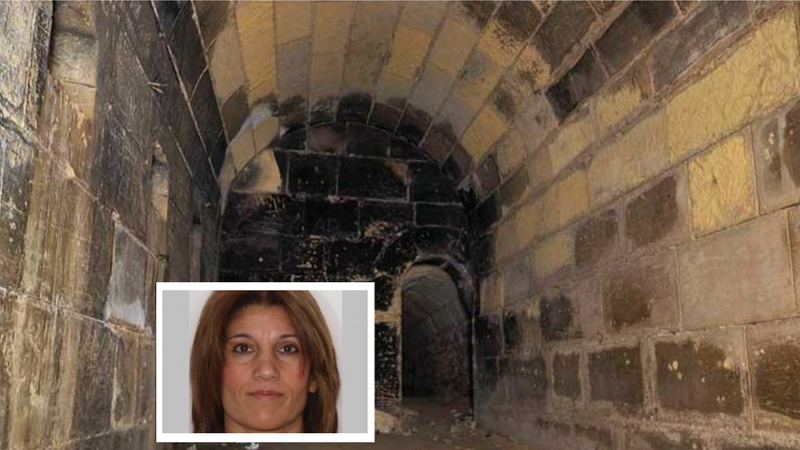Nathalie Williams – the woman who was found trapped for three days in a cave with no food or water – woke up to the news on Friday that the man she says is responsible for her abuse was granted bail.
Her ex husband, Roddy Williams, 37, faces a charge sheet accusing him of placing her life in manifest jeopardy, violently engaging in sexual acts with the woman, holding her against her will, harassing her and causing her to fear violence.
The police found her in an underground chamber beneath Fort Ricasoli last October. They found her by chance – her son bumped into Williams, restrained him and called the police.
When she testified via video conference two weeks ago, she said her ex husband led her through a narrow tunnel and into a small, dark, confined space where he held her and raped her repeatedly over three days.
She said she met him because he had threatened to kill her father and children if she rejected him. She also said her ex husband had a history of domestic violence and that she lived in fear of him.
Did anybody stop to consider the fear she may be feeling now that he is free, after she testified against him? Was she granted any kind of protection? Is it not wise to err on the side of caution if there is a shadow of a doubt that someone’s life may be at risk?
It was observed by the defence that she had reportedly returned to her workplace two days after returning home from hospital following the ordeal. Did anyone stop to question whether she had a choice?
The proceedings in one court case after another on domestic violence expose the misogyny that intensifies the ordeal for any victim. It is the second kind of abuse inflicted on victims of domestic violence bold enough to see through their fear and attempt to seek justice to be able to get on with their lives. Women have described this ordeal repeatedly, and yet more women have to go through it every day.
Lawyers attempt to minimise the impact of the victim’s trauma. The victim is discredited, the ordeal described as an exaggeration, the experience one in which the victim participated willingly and even asked for it. It is a pattern repeated by defence lawyers over and over again in one case of domestic violence after another.
It is a long, difficult, uphill struggle for victims. And it is made worse, much much worse, when the perpetrator is let out while the victim is dragged through an inefficient, long-drawn out case that forces the victim to relive the ordeal for years while struggling to move forward.
Williams originally told the police her husband had kidnapped her but later changed her testimony completely and said she had accompanied him to the underground cell willingly. She then blamed this mix-up on her state of confusion at the time.
Studies have documented how victims of abuse often recant their testimony or not follow through on pursuing charges, a symptom of the cycle of abuse. Yet, even if Williams walked into that filthy cave willingly and stayed there with no food or water out of her own free will, it should still be obvious something is seriously wrong.
These are the kind concerns and unanswered questions that lead to public outrage at news of Williams being granted bail. This is not about trial by media or about people failing to understand the intricacies of the law, but about the message the court sends when such decisions are reported.
Williams being granted bail sends the message that even in cases involving allegations of extreme forms of violence, a victim cannot count on protection.
Standing up to an abuser and testifying exposes the victim to risk of retaliation. That leads to more fear, and so the system once again makes a victim of the individual it has a duty to protect.
It is not enough to justify the decision on the fine workings of the law. The question is can women count on the system for protection?
If, even in such cases, the perception is that the victim could not count on the right protection, what hope for justice is there for those women who suffer more subtle forms of emotional and verbal abuse?
The lofty statements that ‘one more woman should not suffer’ are getting really nauseating when this is the reality on the ground. The grandstanding needs to be replaced with some serious action. Yes, things are moving but they are not moving fast enough.
If they were, Malta would not be discussing Williams’ personal life and her pain.













